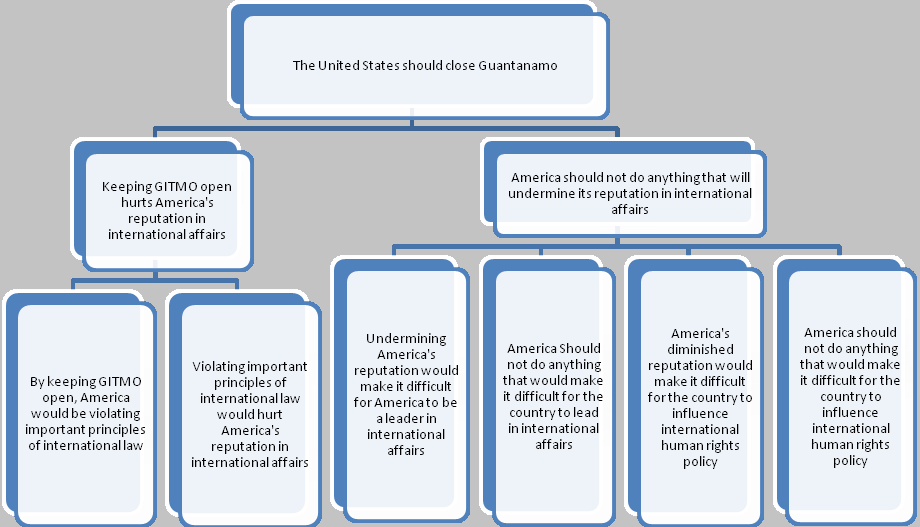
Understanding the structure of arguments is important because it enables a reader to critique various works effectively. Arguments consist of two main parts: premises (usually with reasons and evidence to justify the premises) and conclusions.
Socrates is human (premise) → Socrates is mortal (conclusion)
In this common argument, one concludes that Socrates is mortal because he is human (as humans are, in fact, mortal). In this example a single conclusion/claim is drawn from a single premise. However, most of the arguments readers of academic literature encounter are a lot more complicated with numerous reasons given in support of an assertion, and the assumptions that may hold them together may be difficult to uncover.
A more complex argument might look like this:

The example above gives four reasons in support of the main claim. This could have been a lot more complex; one could add six more copremises and significantly increase the justifications. The most important part of the analysis for the critical reader is to determine whether the reasons given really support the main point. For instance, one may ask whether violating important principles of international law by keeping GITMO open would really undermine America’s reputation.
People sometimes have a difficult time distinguishing between an argument and an explanation. The former is a combination of assertions supporting a central claim; the latter is a description of the circumstances or an interpretation of given information. Thus, one cannot use an explanation to support a claim. For instance, one might say that the increase in teen pregnancy in the US can be explained by the permissive media culture, willingness to take risks in sexual relations, or moral decline. Although these explanations are certainly interesting and may even be true, they are not evidence. One would need to go further and try to provide some sort of empirical evidence to support the claim.
Polish some of the research skills that will be necessary for research, writing, and presentation across multiple academic disciplines.
Research Tools
Services for...
Spaces & Places
About the Library
Jessie Ball duPont Library, University of the South
178 Georgia Avenue, Sewanee, TN 37383
931.598.1664
Facebook